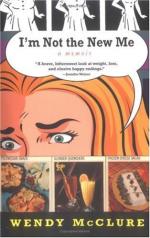Armida was powerless to protect herself except with tears, which did not avail with Lucas. She made overtures of peace, such as offering to cook her brother’s meals and look after his share of the milk; but was warned to attend to her own business.
Lucas had a new pipe-hole made in the kitchen chimney, and bought a new stove, and hunted up a kitchen table, telling Armida she was welcome to the stove and table they had previously used in common, but he’d thank her to stay on her own side of the room. The situation would have been ludicrous if it had not been grim earnest to the brother and sister. Lucas had a hard side to his character, and he could not forgive his sister’s interference. He would not even give Armida advice, but allowed her cows to break into her cornfield and her sheep to stray away, without warning her, though all the while his heart pricked him at sight of her distress. Still all he would do was to suggest that she get a hired man.
Accordingly Armida, in despair, hired an easy-going, good-natured creature that offered his services. He did very well, and Armida got on better, and took courage.
But there was a dreadful blow in store for her. Lucas brought a gang of carpenters to the farm, who instituted repairs on his half of the house. He even went so far as to commit the extravagance of having blinds hung for his sitting-room and front chamber windows, and his half of the front porch was trimmed with brackets, and then the whole of his half of the house painted white, so that his neighbors rallied him on being proud. “Only,” as one said, “why don’t you extend your improvements right along acrost the house, Lucas? It looks sorter queer to see one-half so fine and the other so slack.”
“Armida’s free to do she’s a mind to,” said Lucas. “If she wants to fix up her side, she can. I don’t hinder her—”
“Nor you don’t help her neither, as I see,” said the other.
“I believe in ‘tendin’ to your own affairs and not interferin’ with other folks,” Lucas rejoined.
Armida was made very unhappy by these changes and the comments of the neighbors, and would gladly have beautified her half also, but had no money to spend. The farm had fallen behind, and she was pinched for means. She did what she could, taking more care than usual of vines and flowers, and even had an extra bed dug under her front windows, where she had many bright-hued flowers; but as she rose from digging around her plants and surveyed the house—Lucas’s side with the new green blinds and the clapboards shining with paint, hers with its stained, weather-beaten appearance and its staring windows—she felt ashamed and discouraged.
[Illustration: “AS ARMIDA SAT ON THE BENCH UNDER THE OLD RUSSET APPLE-TREE, ... SHE ... LOOKED UP TO SEE A SHABBY, SHAMBLING, OLDISH MAN COMING AROUND THE SIDE OF THE HOUSE.”]




